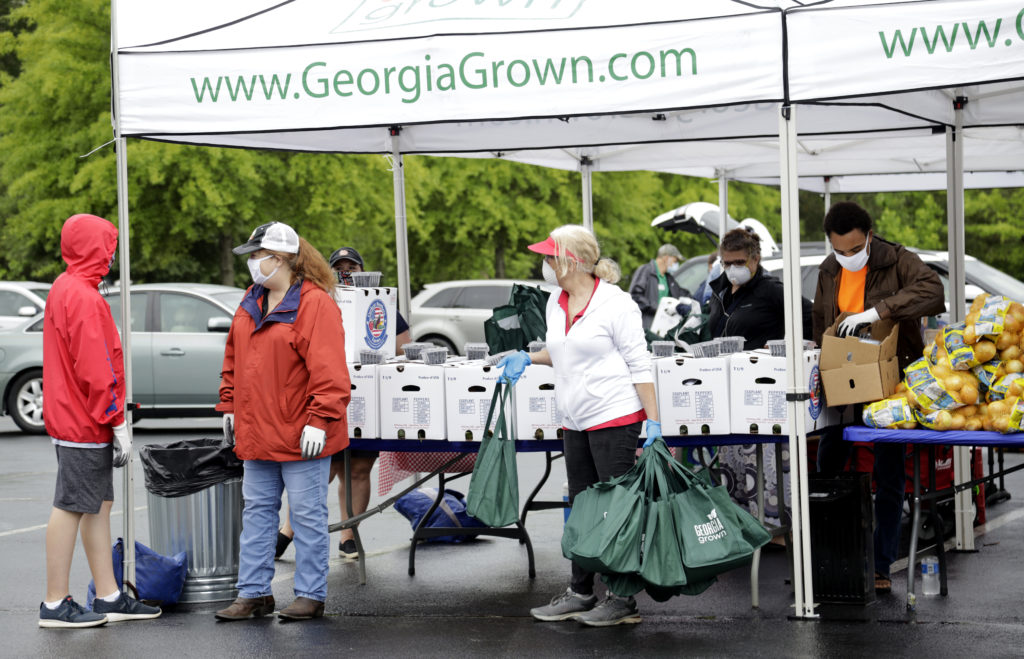When the global COVID-19 pandemic started to get serious last March, CAES and Extension leaders, like so many others, had some tough choices to make.
One of the most important was opting to not shirk site visits for services such as soil and water testing. Under revised COVID guidelines, including masking and limiting travel to only one agent per vehicle, Extension has made more than 30,000 site visits in the past year to assess and offer expert guidance for Georgia producers.
“We treat it as a vital and essential duty to deliver advice and guidance on the farm,” says Associate Dean of Extension Mark McCann. “So we pivoted in order to deliver the same things we had been.”
On the flip side, education efforts were shifted to the virtual space — a move that has been unexpectedly successful.
“The public needs information, and rural areas have surprised us with the high numbers of participation,” McCann says. “We have touched new audiences who had not driven for in-person training, and agents who didn’t have time to travel, but now they can listen from their desks. Some borders have been erased.”
Another new audience is Georgia residents who are increasingly interested in growing their own food, preserving, and simply beautifying yards they now look at all the time. Downloads of Extension’s online publications and resources have jumped 27% percent since last March, McCann says.
“Home garden and preservation took the lead,” he says. “That’s not so much about economic impact, but about making people’s lives better.”
In the fall, the Georgia Foundation for Agriculture, Georgia Farm Bureau, Georgia Department of Agriculture and UGA Center for Agribusiness and Economic Development joined forces to mount a year-end survey measuring the effects of the pandemic on Georgia’s agricultural industry.
The early findings were bleak: 82% of Georgia farmers indicated a loss of revenue attributed to COVID-19, and they were more concerned with the financial impact of the pandemic than they were about getting sick – or the accompanying emotional strain of potential revenue loss and illness. Livestock producers were the hardest hit. More than 75% of respondents said COVID relief programs would not be sufficient.
With challenges come new opportunities, and that’s where Place is focusing.
A prime example: The farm-to-table movement was mostly associated with trendy restaurants that catered to diners willing and able to pay the up-charge for local food, grown and raised by smaller producers who lack the advantage of scale. But that perception is shifting, thanks to a combination of supply chain disruptions and lifestyle changes that have led consumers to be more thoughtful about their food. And UGA Extension is building new pathways that connect producers and consumers more directly than ever before.
“The COVID-19 situation has shed light on issues and opportunities that we face as an industry,” Place says. “As a result, people are more cognizant of our local and national food system and where their food comes from. This presents the opportunity to be more intentional about making people understand how we get food from farms to the market.”
As part of that public education effort, UGA Extension, in collaboration with Georgia Grown and other industry partners, is using its network of county Extension offices to put producers in touch with consumers who want fresh, Georgia-grown fruits, vegetables, and other foods. Although COVID-19 has created supply-chain obstacles that threatened to put smaller growers and producers out of business, the Agricultural Products Connection offers them a lifeline – not just to restaurants but directly to dinner tables around the state.
“The first step is facilitating connections between consumers and growers. There are many people who are looking for fresh produce and cannot find it, and we have producers who have produce and cannot sell it,” says Laura Perry Johnson, associate dean for Extension at CAES. “Together, we can make this into something that will not only help agriculture in Georgia but the people who need access to fresh food as well.”
“One of the bright spots is direct sales from small producers,” McCann adds. “They’ve had a great year.”















